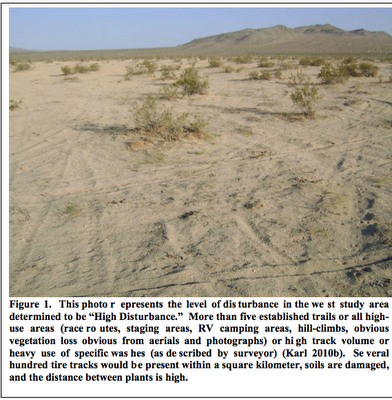West Mojave Plan Would Expand OHV Route Network

The Bureau of Land Management (BLM) in February released a Supplemental Environmental Impact Statement (EIS) for the West Mojave Plan that would expand the open route network for off-highway vehicle (OHV) use and limit livestock grazing. Despite concerns that an earlier iteration of the plan's OHV route network would have a significant adverse effect on wildlife, this draft proposes to significantly expand authorized OHV access to 10,428 miles of routes. For the sake of comparison, the City of Los Angeles alone has about 6,500 miles of paved roads. The last iteration of the West Mojave Plan was finalized in 2006 and proposed to designate 5,098 miles of open routes, but a Federal judge ordered the BLM to revise the plan. The court ruled that the original plan lacked sufficient analysis of the effects of OHV use and grazing on wildlife, and asked the BLM to evaluate alternative OHV route networks that would minimize conflict and avoid cons...


